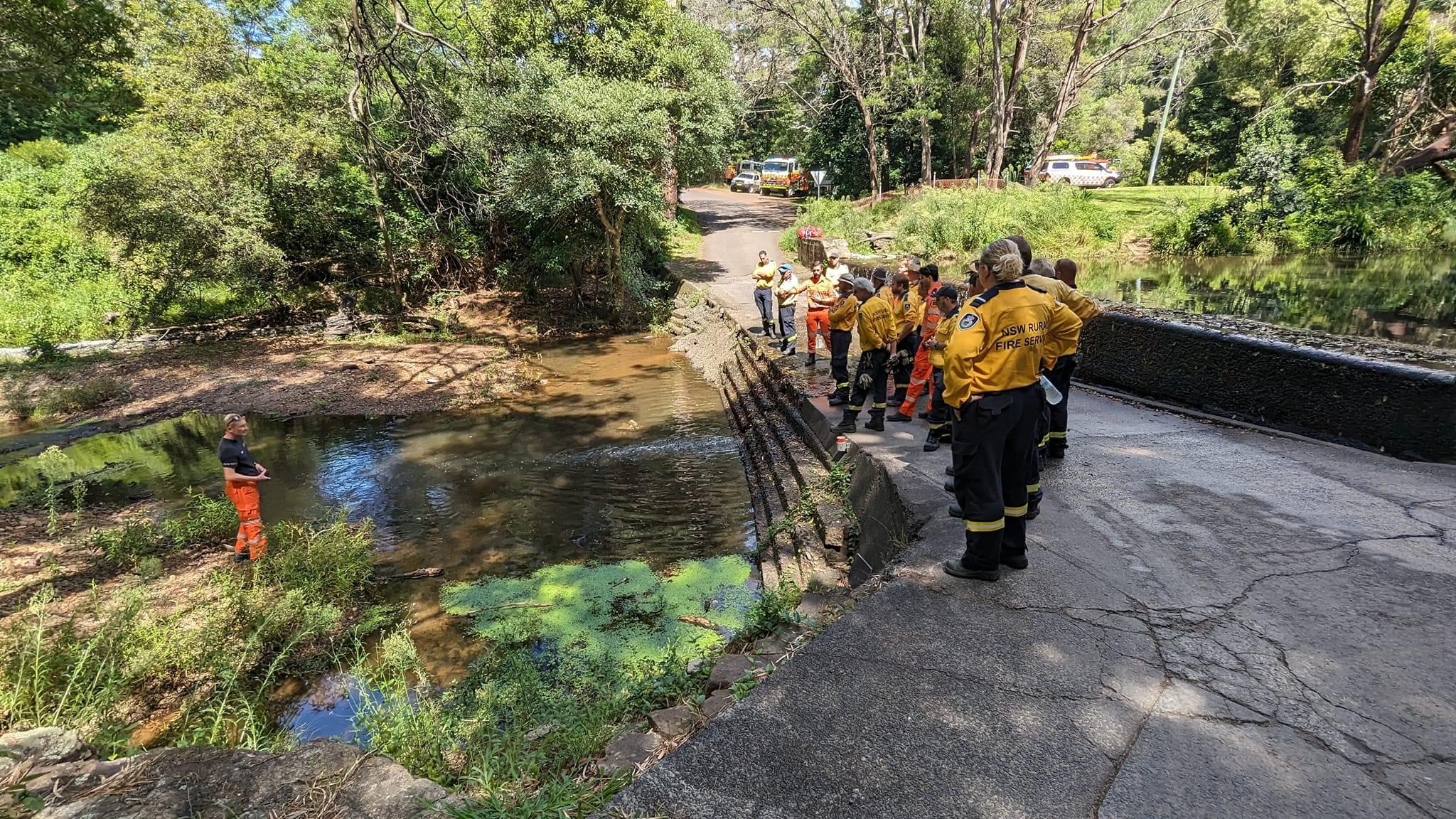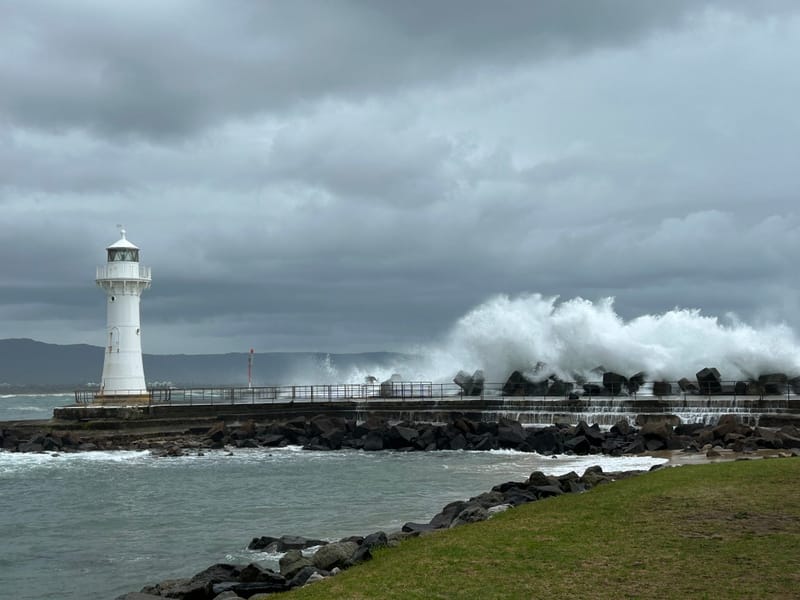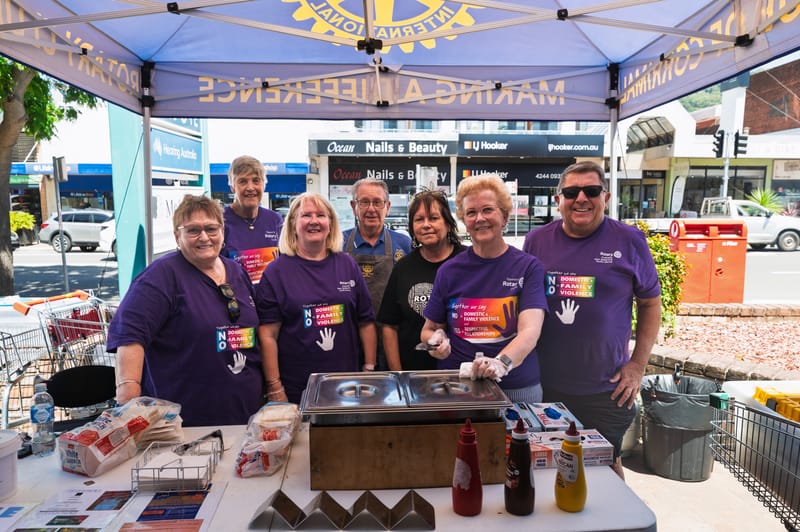Otford Brigade hosts first flood-rescue training for local firies
On Sunday, February 11, Otford Rural Fire Brigade hosted the first flood rescue training session for the Northern Illawarra district’s Rural Fire Service members in a move deemed long overdue. Two dozen firefighters from Otford, Helensburgh...

A year and a half after NSW RFS Illawarra/Sutherland group captain Craig Robertson and Otford Rural Fire Brigade members courageously rescued a man amid rising floodwaters, local volunteer firefighters have had their first flood rescue training session.
“I learned some stuff from the SES last weekend that I wish I would've known when I did my [rescue] a couple of years ago,” Craig said. “It’s an eye-opener.”
Otford Rural Fire Brigade hosted the session for the Northern Illawarra district’s NSW Rural Fire Service members on Sunday, February 11.
NSW State Emergency Service (SES) instructors taught about two dozen firefighters from Otford, Helensburgh, Darkes Forest and Stanwell Park how to use the ancillary land-based flood rescue kits recently issued to local brigades to carry on their trucks.
The kits include two life jackets, two helmets and throw lines.
Craig asked the SES – who are based in Wollongong – to come up and explain their rescue procedures.
“Like any piece of equipment that you get, you need to know how to use it," he said. "Sometimes it could go and sit on the shelf for 12 months and then it'll suddenly need to be pulled off the shelf to be utilised when another major weather event happens.”
The training session comes after the state government-commissioned independent flood inquiry into the 2022 flood disaster across the Hawkesbury-Nepean and Northern Rivers regions recommended the improvement of flood-rescue capability across the state’s emergency services agencies and volunteer organisations, including the NSW SES, NSW RFS, Fire and Rescue NSW and Marine Rescue NSW.
“A lot of this has come out of the 2022 flood inquiries that the New South Wales government implemented, so it's virtually a flow on from that,” Craig said.
“It comes back to the incidents that we've had throughout the state where RFS members have been involved in putting their lives at risk to rescue people in floodwaters, but not with the appropriate equipment.
“Our brigades throughout the state will be trained in different [flood rescue] categories… so there'll be your land-based rescues, which the brigades in the [Illawarra] Group 1 area will be trained in, and then there'll be boat [training] and other sort of stuff throughout the rest of the state.
“At this stage, our guys in the 2508 area will only [be issued] land-based flood-rescue kits.”
At Otford RFS – of which Craig is a life member and former captain – the distribution of flood-rescue equipment is particularly valuable.
In recent years, Otford RFS – often assisted by other Northern Illawarra brigades – has been the first on scene at several flash flood incidents at Otford Causeway and further along the Hacking River.
In July 2022, the rescue of a man clinging to a tree amid rising floodwaters earned Craig a Commissioner’s Commendation for Bravery, but it was by a stroke of luck that the rescue was pulled off safely without the appropriate training or equipment.
“That water can come up so quickly on you, and you could think it may look okay to drive through, but you don’t know what's on the other side of that, coming down that weir,” Craig said.
“We have five causeways in that Hacking River area that runs through Otford and down through the National Park, so it will benefit our local brigade to have that understanding of the flood-rescue kits that we’ve been issued with."
Craig says the session was also a chance for local RFS members to build a rapport with the NSW SES and learn how best to assist them before they arrive on scene.
“Where we're stationed in the northern part of the Illawarra, most of the time we’re the first ones on scene, so for [us] to have that understanding of different sort of things we need to do that will benefit them is important, because our SES come from Wollongong,” Craig said.
“[During] normal storm events, we'll assist them with removing trees off properties … it was only last year we were down in the Wollongong area where certain parts of Wollongong flooded, and the RFS was there pumping out drains and things to move the water along, so we do a fair bit of that sort of work with them.”
While firefighting remains the priority for our local RFS, flood-rescue training will continue, with the brigades planning to perform practice rescues at a local swimming pool or dam.




